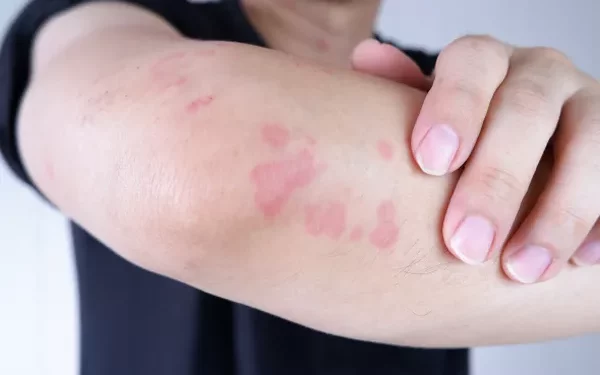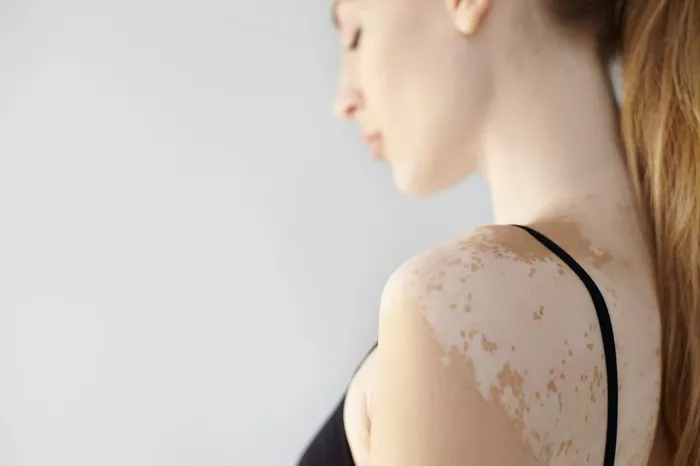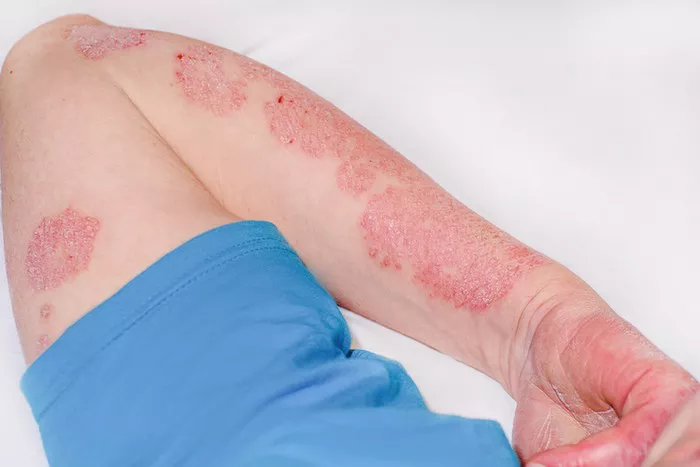Hives, medically known as urticaria, are raised, itchy welts on the skin. They can vary in size and shape and can appear anywhere on the body. Hives can be triggered by various factors and may indicate an allergic reaction or other underlying health issues. This article will explore what hives are, their causes, symptoms, diagnosis, treatment, and prevention.
Understanding Hives
Definition of Hives
Hives, or urticaria, are characterized by swollen, red areas on the skin. These welts can be flat or raised, and they often cause itching. In some cases, hives can also cause a burning or stinging sensation. They can appear suddenly and may disappear just as quickly, often within a few hours.
Types of Hives
Hives can be classified into two main types:
Acute Urticaria: This type lasts for less than six weeks. It often appears suddenly and can be caused by an allergic reaction to foods, medications, or insect stings.
Chronic Urticaria: This type lasts for more than six weeks and can occur intermittently. The cause may be unknown, but it can be linked to autoimmune conditions, chronic infections, or other health issues.
Causes of Hives
Allergic Reactions
The most common cause of hives is an allergic reaction. When the body encounters an allergen, it releases histamine and other chemicals, leading to swelling and inflammation. Common allergens include:
Foods: Nuts, shellfish, eggs, and dairy products.
Medications: Antibiotics, non-steroidal anti-inflammatory drugs (NSAIDs), and aspirin.
Insect Stings: Bee or wasp stings can trigger a severe allergic reaction.
Physical Triggers
Some people experience hives in response to physical stimuli. These triggers can include:
Heat: Hot showers, saunas, or exercising can provoke hives in some individuals.
Cold: Cold weather or exposure to cold water can lead to cold urticaria.
Pressure: Wearing tight clothing or applying pressure to the skin can cause pressure urticaria.
Other Triggers
In addition to allergies and physical triggers, several other factors can contribute to the development of hives:
Infections: Viral infections, such as the common cold, can trigger hives in some people.
Stress: Emotional stress can lead to outbreaks of hives.
Autoimmune Conditions: Disorders like lupus or thyroid disease can cause chronic hives.
Symptoms of Hives
Common Symptoms
The primary symptom of hives is the appearance of raised, itchy welts on the skin. Other symptoms may include:
Color: The welts can be red or skin-colored.
Size: Hives can range from small spots to large patches.
Itching: The welts are usually very itchy and can be bothersome.
Swelling: Some individuals may experience swelling in areas like the lips, eyes, or throat.
Severe Symptoms
In some cases, hives can be part of a more severe allergic reaction known as anaphylaxis. This condition is a medical emergency and can include symptoms such as:
- Difficulty breathing
- Swelling of the throat and tongue
- Rapid heartbeat
- Dizziness or fainting
If these symptoms occur, seek emergency medical help immediately.
Diagnosis of Hives
Medical History
To diagnose hives, a healthcare provider will typically begin by taking a detailed medical history. They will ask about:
- Recent exposures to potential allergens
- Any medications taken
- Family history of allergies
Physical Examination
A physical examination will focus on the appearance of the hives. The healthcare provider may look for:
- The size and location of the welts
- The duration of the outbreak
- Any signs of swelling or other symptoms
Additional Tests
In some cases, further testing may be needed. This can include:
- Skin Tests: To identify specific allergens.
- Blood Tests: To check for underlying conditions or infections.
Treatment of Hives
Over-the-Counter Medications
For mild cases of hives, over-the-counter (OTC) antihistamines can be effective. These medications help reduce itching and swelling. Common OTC antihistamines include:
Diphenhydramine (Benadryl)
Loratadine (Claritin)
Cetirizine (Zyrtec)
Prescription Medications
If hives are severe or persistent, a healthcare provider may prescribe stronger medications. These can include:
H1 Antihistamines: Higher doses of antihistamines may be recommended.
Corticosteroids: These can help reduce inflammation and swelling.
Immunosuppressants: In chronic cases, medications that suppress the immune system may be necessary.
Avoiding Triggers
Identifying and avoiding known triggers is essential for managing hives. This may involve:
- Keeping a diary to track outbreaks and potential causes.
- Avoiding certain foods or medications.
- Making lifestyle changes to reduce stress.
Prevention of Hives
Identifying Allergens
The best way to prevent hives is to identify and avoid allergens. Allergy testing can help determine what substances may trigger a reaction.
Lifestyle Modifications
Certain lifestyle changes can also help reduce the risk of hives:
Stress Management: Practice relaxation techniques such as meditation or yoga.
Avoiding Known Triggers: Stay away from known allergens and physical triggers.
Wearing Loose Clothing: This can help prevent pressure-induced hives.
Regular Check-Ups
Regular visits to a healthcare provider can help manage chronic hives. This may involve ongoing treatment plans and monitoring for any changes in symptoms.
When to Seek Medical Help
While hives can often be managed at home, there are times when medical attention is necessary:
- If hives persist for more than a few days.
- If you experience severe symptoms, such as difficulty breathing or swelling.
- If new symptoms develop alongside the hives.
Conclusion
Hives, or urticaria, can be a bothersome and sometimes serious condition. Understanding what hives are, their causes, symptoms, and treatment options is crucial for effective management. By identifying triggers and working closely with healthcare providers, individuals can find relief and prevent future outbreaks. If you experience hives, especially with severe symptoms, don’t hesitate to seek medical attention.
Related topics:


























